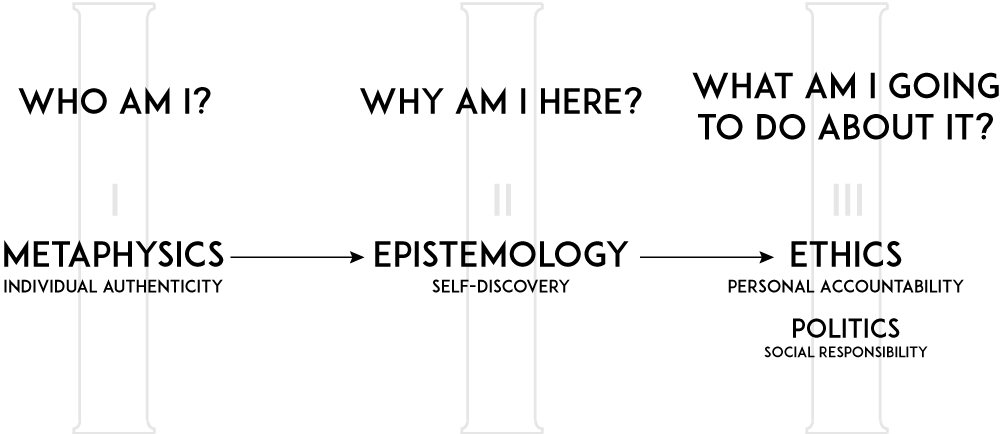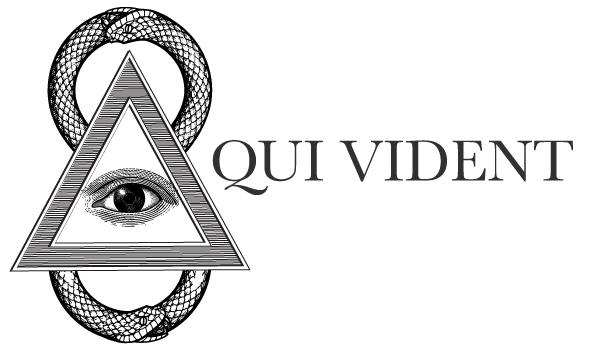Street Theology
I have to give Joshua Gadbois credit for this. He explained to me the outline for one of his hermetic courses in which the student is asked three questions: Who are you? Why are you here? What are you going to do about it? It was brilliant.
He and I discussed extensively how the way this breaks down from the categories above as Who are you? (Metaphysics) Why are you here? (Epistemology) What are you going to do about it? (Ethics and Politics). It's really quite a beautiful arrangement that allows for even more depth in our approach to personal philosophy and yet grounds it in useful language that is available to everyone. I call it Street Theology.

Thelemic Metaphysics provides us with the basis of individual authenticity. This is where our “Every man and every woman is a star” (among other verses) fits in.
From there, we slide right over to epistemology where we find self-discovery. It is a seamless slide from individual authenticity to self-discovery.
However, this is where “Do what thou wilt shall be the whole of the Law” starts to come into play. Every aspect of this verse requires an epistemological perspective in order to be intelligible while still being grounded in our Metaphysics.
What does our epistemology provide the foundation for in Ethics? Personal accountability. Hopefully you’re seeing the flow here, and how each is building naturally on the last. Our Ethics are about personal accountability.
I could go on about Ethics here yet again, but that’s been fairly well covered already. Suffice to summarize again, that if each of us is a sovereign star then our only Ethics is to ourselves, in being accountable for every action, every thought, every behavior, everything about ourselves. Now, if that sounds “selfish,” it is; but maybe not in the way that you’re accustomed to think of selfishness. We’ll get into Selfishness/unselfishness (or division/union, resistance/participation, individual/collective) another time as well. It’s a fascinating study that tends to take people by surprise until they really start to understand the concepts involved.
Attribution
No part of this publication may be used or redistributed for any purpose without the express prior written consent of the author.
Canons of Thelemic Philosophy & Religion © 1996-2024 by Qui Vident.

Comments
If you wish to comment about the materials here, feedback is welcome. Feel free to email questions, comments, and concerns regarding the Canons to curate@quivident.co.